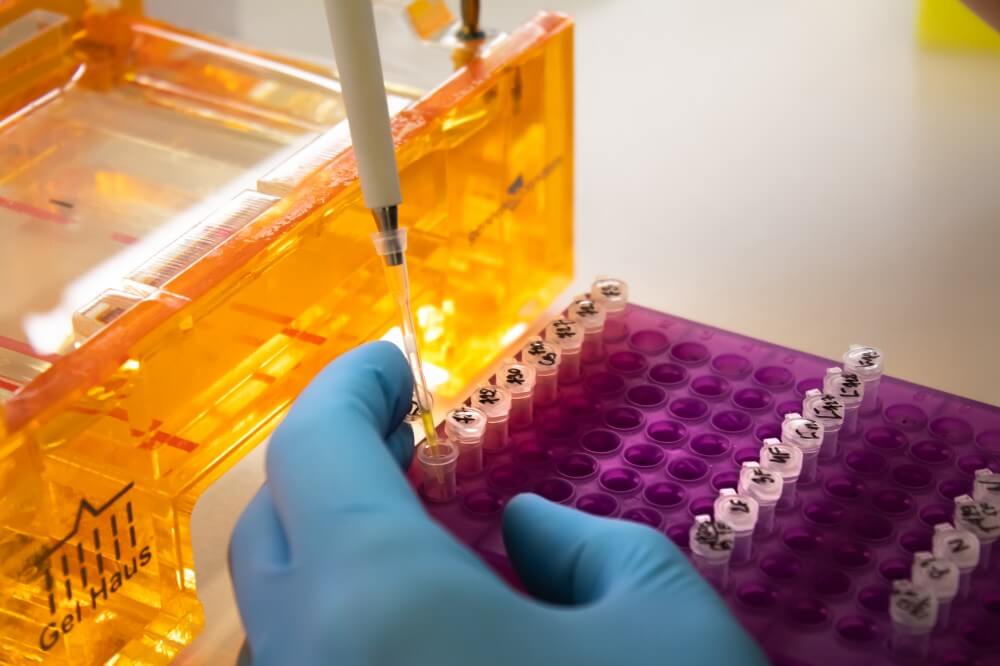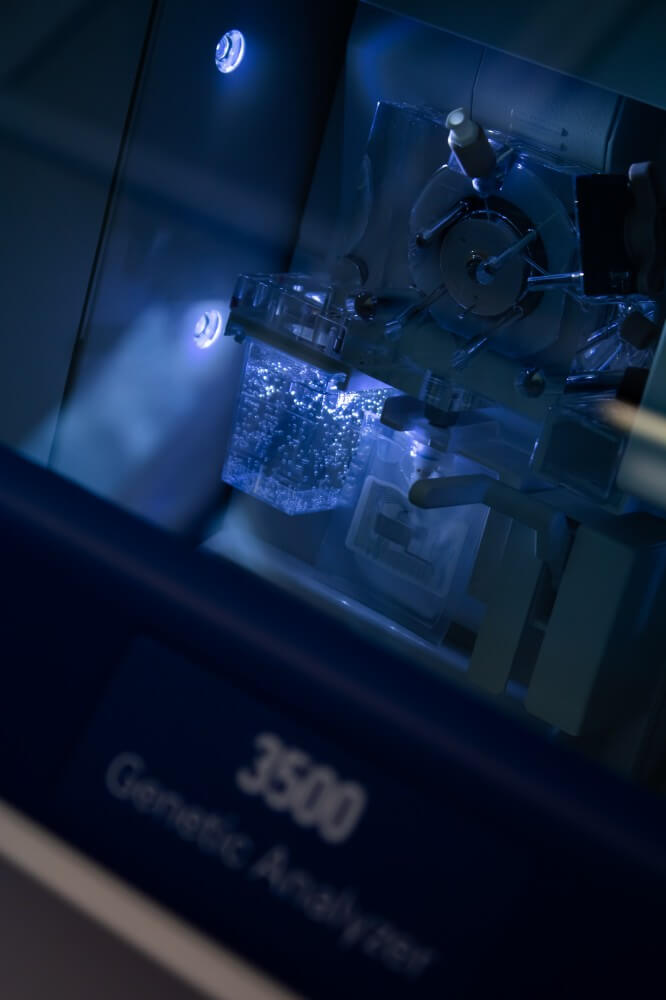Amniocentesis for trisomy
Attention! Changes due to the COVID-19 pandemic!
SIA GenEra changes the usual visiting procedure!
The laboratory accepts clients and patients in person strictly by prior appointment. To apply for a visit at the GenEra Laboratory and submit a testing sample, please write to info@genera.lv or call us 26267833!
You will have to provide information about the analysis to be performed, the name and the year of birth of the person to be examined, preferred date and time of the visit, and your telephone number.
Pregnant women can undergo remote DNA, without visiting the laboratory. Your doctor can order from us a sampling kit for collecting a remote sample so you can have your blood sampled for the DNA test during your routine visit. Postage is paid by GenEra. Please note that the additional time required for sending the samples must be added to the total testing time.
Protect yourself and your loved ones!

Amniocentesis or chorionic villi material DNA testing for the most common trisomies
What is a trisomy?
Humans have 46 chromosomes or 23 chromosome pairs in each cell. Half (23) of the chromosomes are inherited from the mother and the other half (also 23), from the father. Trisomy is a chromosomal pathology, an error in cell division when a third chromosome joins a pair of chromosomes. In this case, there are more than 46 chromosomes in the cells of the unborn child. Unfortunately, such significant changes in the genome cause serious developmental disorders and lead to congenital pathology.
Most frequent trisomies:
Chromosome 21 (Down syndrome)
Chromosome 18 (Edward syndrome)
Chromosome 13 (Patau syndrome)
sex chromosome aneuploidy (Turner (X monosomy) and Klinefelter (XXY) syndromes).
Risks of genetic pathologies:
Pregnancy after 35
Father’s age over 45
Congenital anomalies in one or both parents
One of the parents has a karyotype change or a congenital chromosome change
Any of the parents exposed to ionizing radiation
Parents are blood relatives
Multiple miscarriages, preterm births, or stillbirths
Acute viral infections, use of certain drugs in the first trimester of pregnancy
A child in the family with congenital foetal developmental abnormalities

Test description:
Trisomy DNA testing requires a sample of amniotic fluid obtained by amniocentesis. It is not possible to perform amniocentesis or biopsy of the chorionic villi in the GenEra laboratory; we analyse already sampled material.
Amniocentesis is a method of collecting amniotic fluid. Under careful ultrasonographic control, a fine needle is pierced through the anterior wall of the pregnant woman’s abdomen (through the skin, subcutaneous tissue, uterine wall) and a small amount (10–15 ml) of amniotic fluid is collected. The puncture is made in the upper part of the uterus on one side of the navel because the placenta does not attach there and the risk of injuring the foetus is very low. The manipulation is done without anaesthesia. After removing the needle, a sterile bandage is applied to the puncture site. Amniocentesis is usually performed at 14–19 weeks of pregnancy. The need for amniocentesis and genetic testing of foetal DNA is decided by the doctor supervising the pregnant woman (gynaecologist, obstetrician, geneticist), who evaluates the risks of genetic pathologies, the course of pregnancy, the results of tests and examinations already performed. Amniocentesis is recommended if there is no reasonable justification as there is a small risk of miscarriage. The amniocentesis procedure is performed at Riga Maternity Hospital, BKUS, and PSKUS (Dr Z. Krastiņa).
GenEra offers the most common diagnostic test for chromosomal aberrations (trisomy) by quantitative polymerase chain reaction (PCR) using the ChromoQuantTM reagent kit (manufactured by CybergeneAB, Sweden). Chromosomal DNA is isolated from the collected amniocytes. The test defines the exact number of chromosomes 13, 18, 21, indicating the presence or absence of trisomy.
Test results are usually available within 24–48 hours. It is especially important in cases where the diagnosis should be made as soon as possible; for example, if testing is done in late pregnancy, 18th–20th week of gestation.
Important!
With a doctor’s referral (for a complete list, see the “Prices” section) medical DNA tests (except for the prenatal NIPT “Panorama” test for pregnant women) are paid for by the NHS. Important! The NHS only pays for the test if the referral is issued as part of an NHS-paid visit, and the doctor has a contract with the NHS. Referrals issued during a paid visit will not be valid. Quotas are available.
The sample for DNA testing can be submitted at any branch of our partner - Centrālajā laboratorijā.
You can also order all offered DNA tests at full price. Remote contactless testing is available for both paid and NHS-referred tests. All medical DNA tests can be performed remotely, except for tests on pregnant women, where a blood sample must be collected.
Do you have questions about testing opportunities?
Ask us!